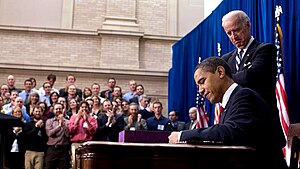President Obama's Asia trip timed right after the elections was planned to take care of the domestic bad news. There are several major sales issues that have cropped up in the Indo-US relationship. Let us review these and see if the relationship can overcome the hurdles.
In actual Dollars, Bharat is overestimating the leverage it has with the US. The recent Saudi deal is over $60 billion. The Gulf deal is worth $120 billion. Indonesia is also signing a deal with the US which is larger than any arms deal that Delhi can come up with.
The relationship will have to navigate some of the traps that are in the way. Bharat sees itself as a major player. The US sees it as a customer whose ego has to be massaged. After a devastating defeat President Obama wants to show something to his supporters so that the can change the news cycle in his favor.
1) In the MMRC bid Bharat is leaning towards the Euro Fighter. This means that Delhi's 126 fighters will be European. As a consolation prize, Delhi is holding out the promise of purchasing F-18s or F-35s from the USA. One test of the Indo-U.S. “strategic partnership” will be if it is able to survive an Indian refusal to spend billions of dollars on American military hardware.
2) Bharat is very reluctant to sign the Logistics Support Agreement (LSA). The LSA and CISMOA aim to boost interoperability between the Indian and American militaries. The US sees these agreements as routine, while Bharat new to deals with America is still bewildered at the amount of paperwork required to get things moving.
3) Delhi is reluctant to sign the Information Security Memorandum of Agreement (CISMOA). Confronted with the Indian refusal to sign on the dotted line, American officials say the LSA and CISMOA texts on offer are identical to what dozens of countries have had no problem signing. They are also upset with India's reluctance to sign “foundational” defence agreements like the Logistics Support Agreement (LSA) and the Communication and Information Security Memorandum of Agreement (CISMOA).
India, on the other hand, is reluctant to sign CISMOA and LSA agreements because it is wary of the wider strategic implications.
4) The 123 Civilian Nuclear Deal signed under the Bush Administration has been moving along slower than molasses. With the japanese refusal to sign a similar deal with Delhi, the 123 is pretty much dead. GE and other Nuclear companies are heavily dependent on Japanese part manufacturers.
Having done the heavy lifting at the Nuclear Suppliers Group to win an exemption for India from the cartels' export ban in 2008, the U.S. fears its own companies may not be able to benefit from the multi-billion dollar Indian nuclear market. Westinghouse and GE are squeamish about selling their reactors because the new Indian law opens a door for them to be held liable in the event of an accident caused by defective equipment. The executive branch may have wanted a more lenient law but Parliament thought otherwise. Despite this, the American side is looking for ways to undo the legislation.
5) In the countdown to President Barack Obama's visit to India, American officials have expressed their frustration over the new nuclear liability law.
If the Indian liability law goes beyond the international norm in insisting that suppliers too shoulder a part of the risk involved in the nuclear power generation business, this is because India is the first democracy to go in for a massive expansion of nuclear capacity in recent years. If the U.S. administration is unable to appreciate the sensitivity of the question in a country which experienced the Bhopal disaster, it could at least look at how the BP oil spill in the Gulf of Mexico has forced a rethink of liability limits in the United States. Instead, suggestions are being made that the Indian nuclear operator contractually take on the entire liability burden of its supplier even when an accident is traced back to faulty equipment. The end result of this pressure, of course, is that Parliament is likely to demand the right to scrutinise any reference to liability in the commercial contracts the Nuclear Power Corporation of India Limited (NPCIL) signs with American vendors.
6) The U.S. has been an expeditionary and even belligerent power in Asia and though the Indian government supports the American war in Afghanistan, the 2003 invasion of Iraq had disastrous consequences throughout the region. With many in Washington speaking of a looming confrontation with Iran over the nuclear issue — a confrontation that would make the Iraq war look like a tea party — why should India do anything to facilitate American military deployment in the region? The Hindu, Agencies, TOI, Indian Express, Rupee News etc.
Keywords: India's global rise, arms deal, nuclear liabity law
Related articles
- Pakistan forces US to pressure India to disavow 'Cold Start' (rupeenews.com)
- Running to India for a $12 billion sale? (pakistanindependent.com)
- Pakistan exposes India's 'Cold Start' diabolical plans (timesofislamabad.com)
- Why is India hiding its 'Cold Start' intentions? (newpakistantimes.com)
- Exposed: India is hiding its 'Cold Start' intentions (pakistanindependent.com)
- Exposing and destroying India's hidden 'Cold Start' Strategy (pakistanakhbar.com)
- India sees itself as a Republican 'Red state' nostalgic for Bush era (rupeenews.com)
- A tepid reception for Obama in Delhi spells failure (rupeenews.com)
- Obama to get a friendly but subdued welcome in Delhi (thedawn.com.pk)
- Obama's Delhi trip: More style than substance (rupeenews.com)
- Indo-US Nuclear deal jeopardised by failed Indo-Japan deal (rupeenews.com)
- Brief stop-over in Rawalpindi: Theatrics in Delhi (newpakistantimes.com)
- Outsource Obama if he takes more jobs to India (viewstimes.com)
- When Fuel stops may be more significant than State visits (pakistanindependent.com)
- So Obama can boost US economy with $12 billion in sales? (pakistanledger.com)
- Obama's will take tough stand on outsourcing (pakistanledger.com)
- Mentioning 'K' during Obama's Kashmir trip to India (pakistanledger.com)

No comments:
Post a Comment